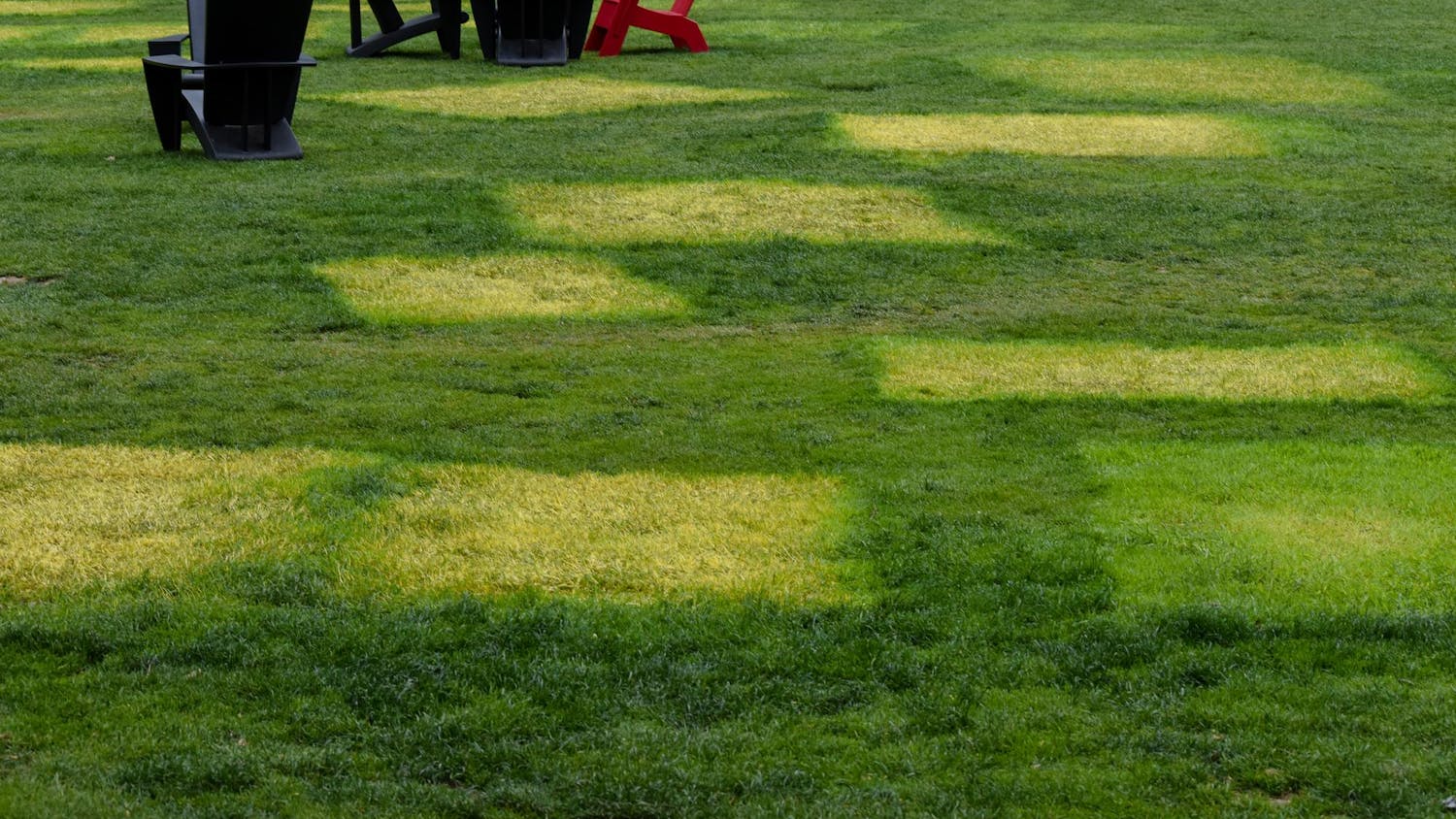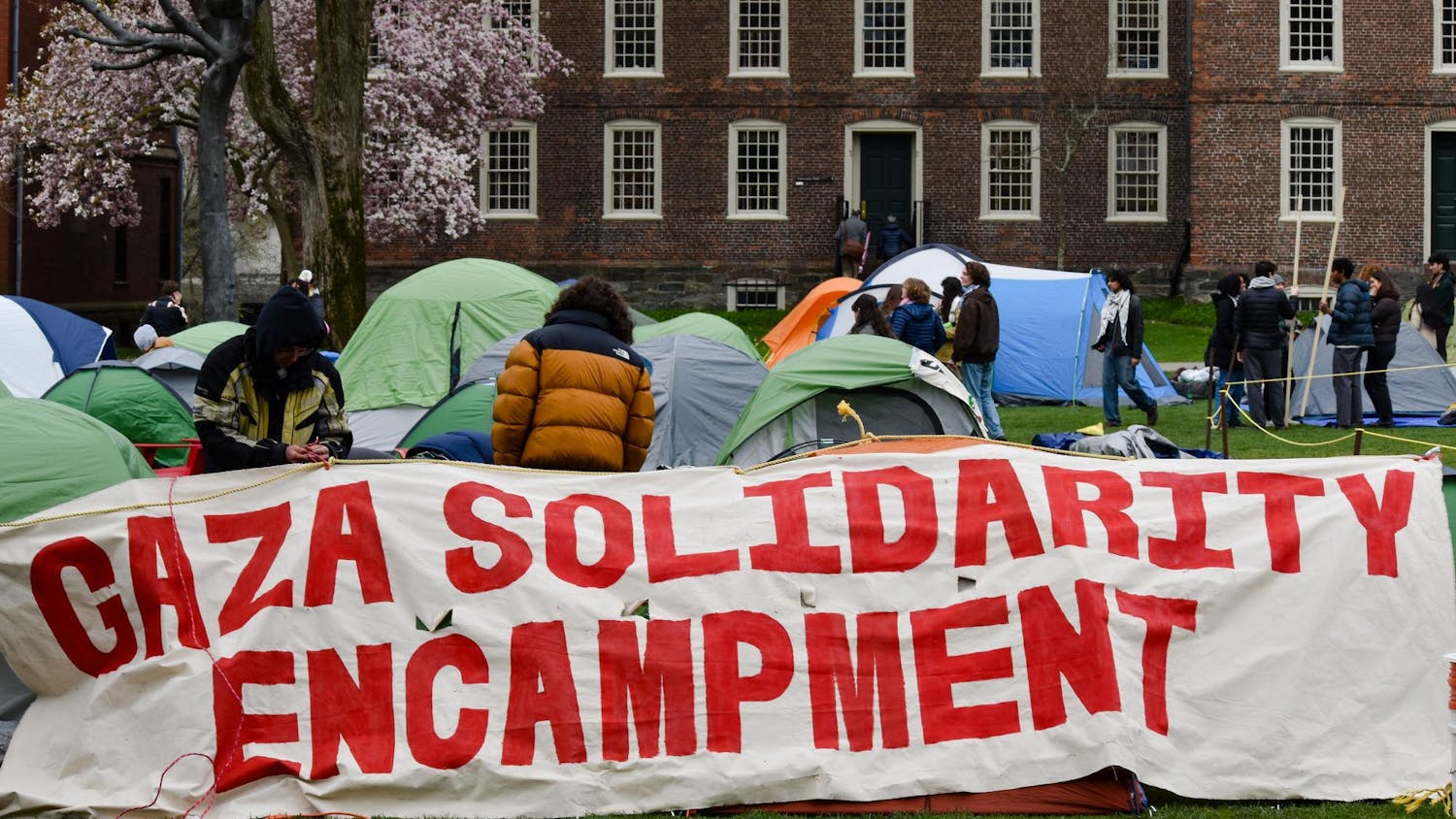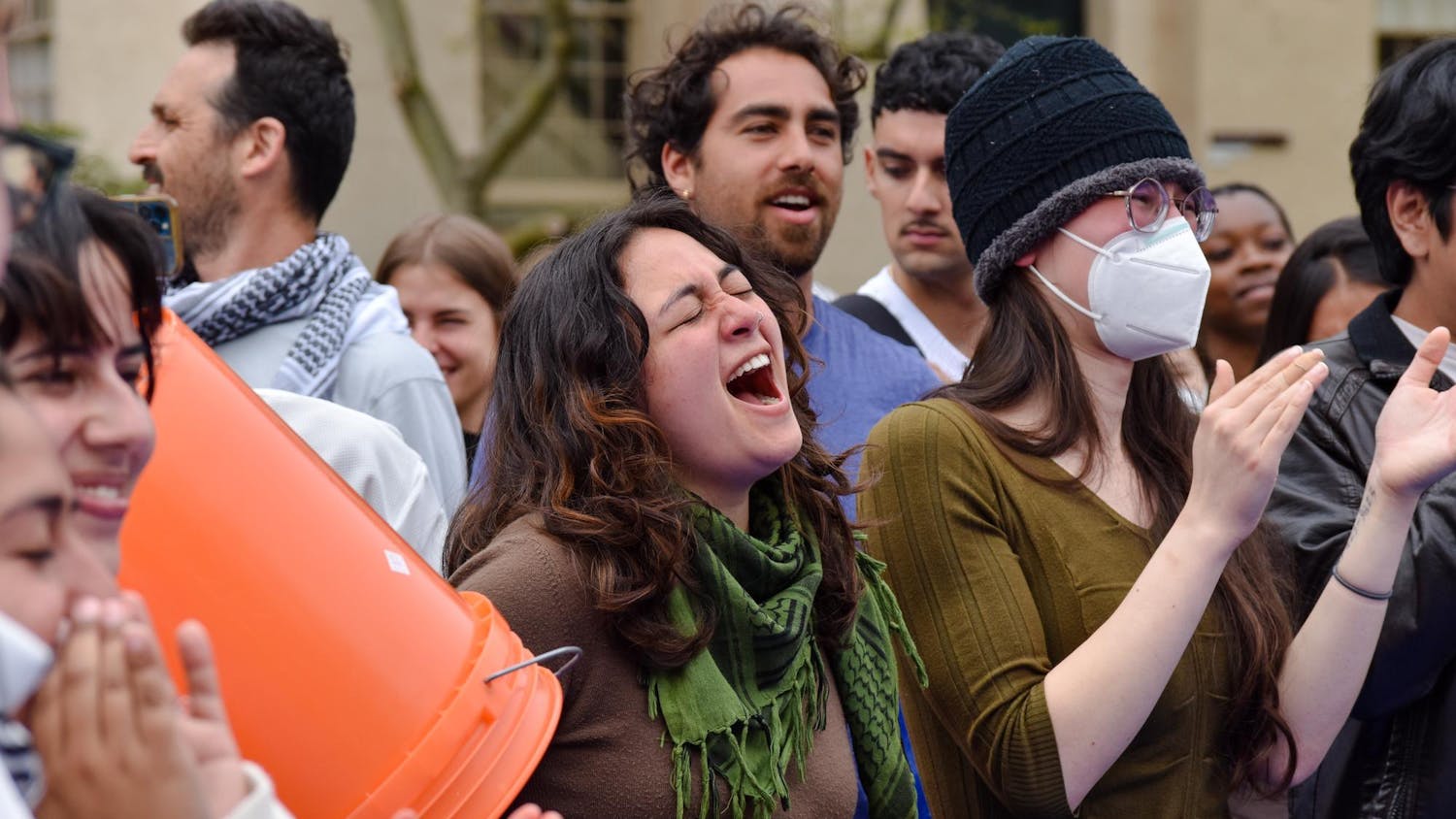Undergraduates assigned to live in the Omni Hotel in Downtown Providence have expressed mixed opinions about their living situations.
At least 219 students were assigned to live in the Omni, where the University leased rooms for the spring semester to accommodate the return of more students to campus amid the ongoing COVID-19 pandemic, The Herald previously reported.
While life at the Omni comes with perks such as laundry service, king-sized beds and private restrooms, some students have expressed a sense of disconnect from campus.
“Overall, it has been really nice,” Abigail Bachenberg ’23 said. “The bathrooms are wonderful and the bed is super comfy.”
But Bachenberg expressed confusion regarding some amenities and services at the Omni. According to her, the University did not communicate how often linens would be exchanged and that laundry requiring specialized washing would cost extra. Bachenberg also said that students’ rooms did not come with hand soap, which she found confusing because she did not expect to have to provide her own.
Students encountered additional obstacles obtaining meals at the Omni during Quiet Period. Those living in the hotel “were supposed to continue to get meals from the hotel through the end of Quiet Period, but (on Monday, the day before Quiet Period ended), they ran out of lunches before 1 p.m.,” Bachenberg said.
The University’s COVID-19 safety guidelines for students on campus were also confusing to Bachenberg, who was not sure how directives to remain on-campus applied to those living in the Omni in light of the hotel’s geographical distance from the University.
Multiple members from the Office of Campus Life declined to comment or did not respond when asked for response to students’ accounts of experiences in the Omni.
Some students have also encountered issues with the WiFi at the Omni, as they rely on it to log into Zoom meetings throughout the day. Even with improvements and adjustments made by the hotel, “it is still relatively flaky,” Kyoko Leaman ’23 said. “It holds up somewhat, but I have still been dropped from a few Zoom calls and unable to load lecture videos.”
Susan Tang ’23 also expressed some frustration regarding the hotel’s WiFi, as it made her shopping period especially challenging. “I’m constantly dropping Zoom calls, and it’s gotten to the point where I’ve been taking my classes in the hallway since the WiFi is marginally better out there than in my room,” she said.
Moreover, “there’s no real sense of community like there was when I lived in a dorm,” Tang said. The lack of shared lounge spaces could be a potential cause of this, she said, while acknowledging that it could also be a symptom of college life during a global pandemic.
“It’s hard … because I feel like as long as I’m in a hotel, I’m going to be missing the dorm-life experience,” Tang said. “But I know the moment I go back to dorm living, I’m going to complain about how much poorer the living conditions are than (at) the hotel.”
Leaman, who said she would prefer to live in a dorm over the Omni, added that despite the hotel’s amenities, “you lose a lot of the sense of actually being at college that I was already missing studying remotely last semester. It doesn’t really feel like being back at school, but it doesn’t quite feel like studying remotely either.”
Luke Prestwich ’23 also said that he would rather be living on campus. “Living in the Omni has been really pleasant, but it is rather far from Brown,” he said. “It is always an outing to get to campus even just to pick up food.”
Bachenberg added that living in the Omni “does feel very disconnected from campus,” and that she has only returned to campus to pick up books for her courses.
Manuel Quezada ’23.5 disagreed, and “personally would not prefer to be living in one of the dorms,” he said. “The hotel is much nicer, cleaner and accessible.”
The hotel’s distance from campus is the only downside for Quezada. Still, he noted that the University shuttle runs from the hotel every five to 10 minutes, and meals and COVID-19 testing have been taking place at the hotel itself. “The advantages,” he said, “definitely outweigh the disadvantages.”

ADVERTISEMENT




